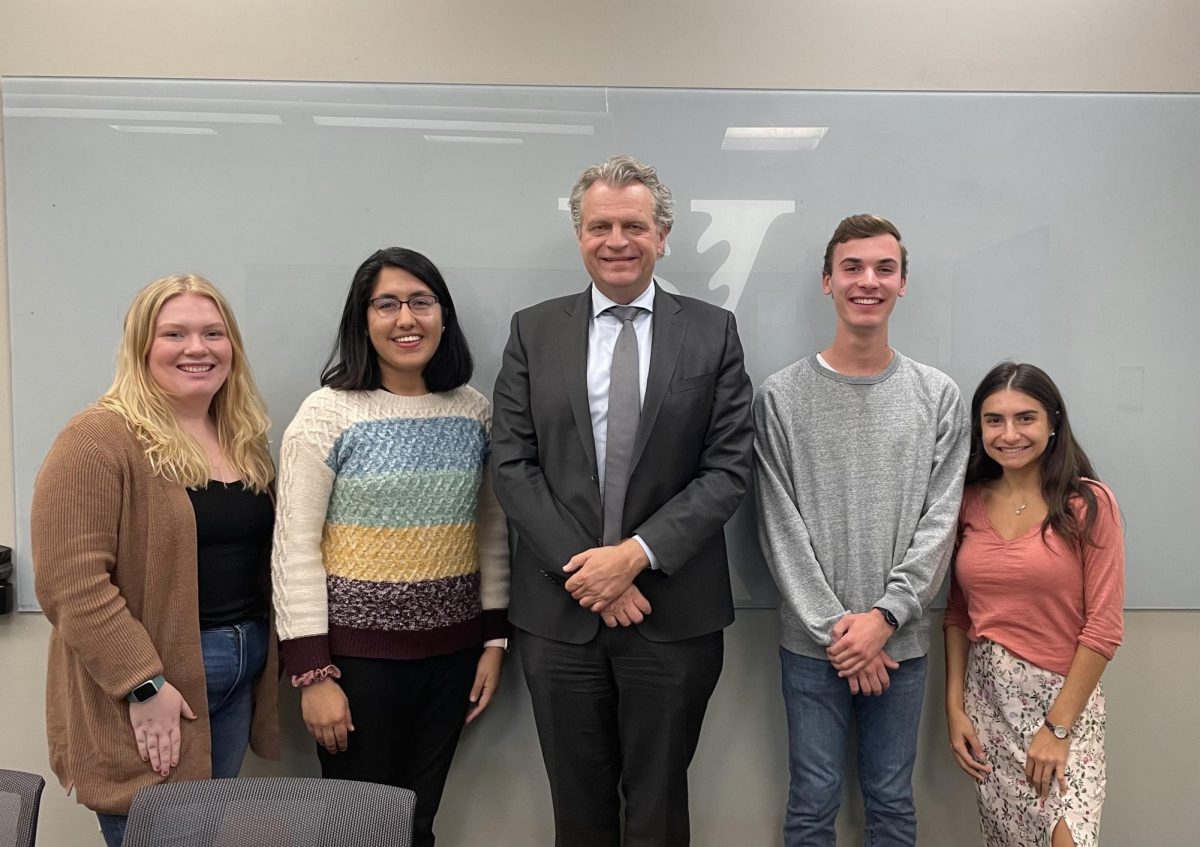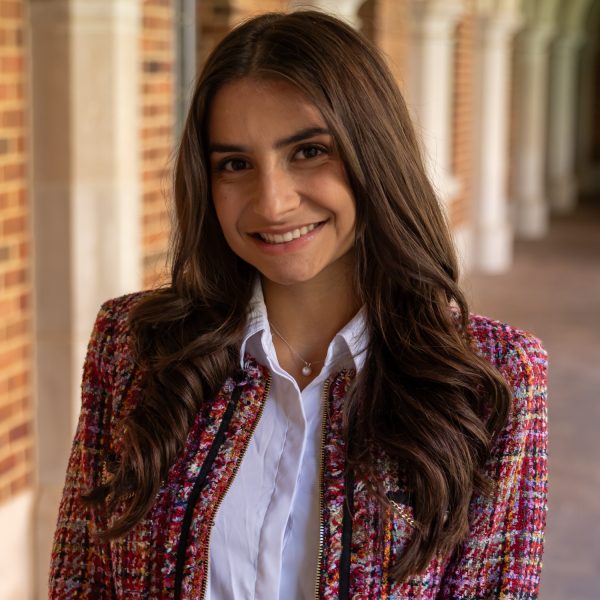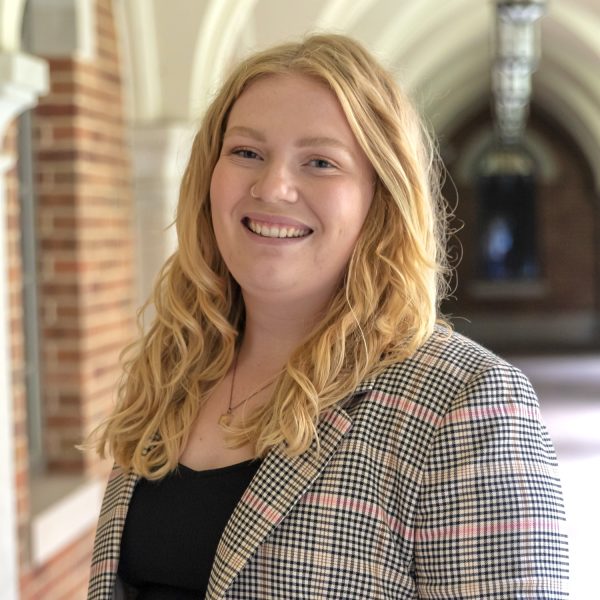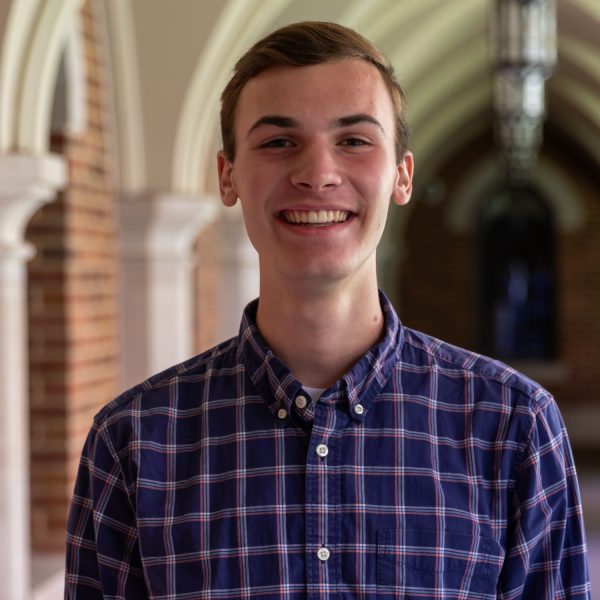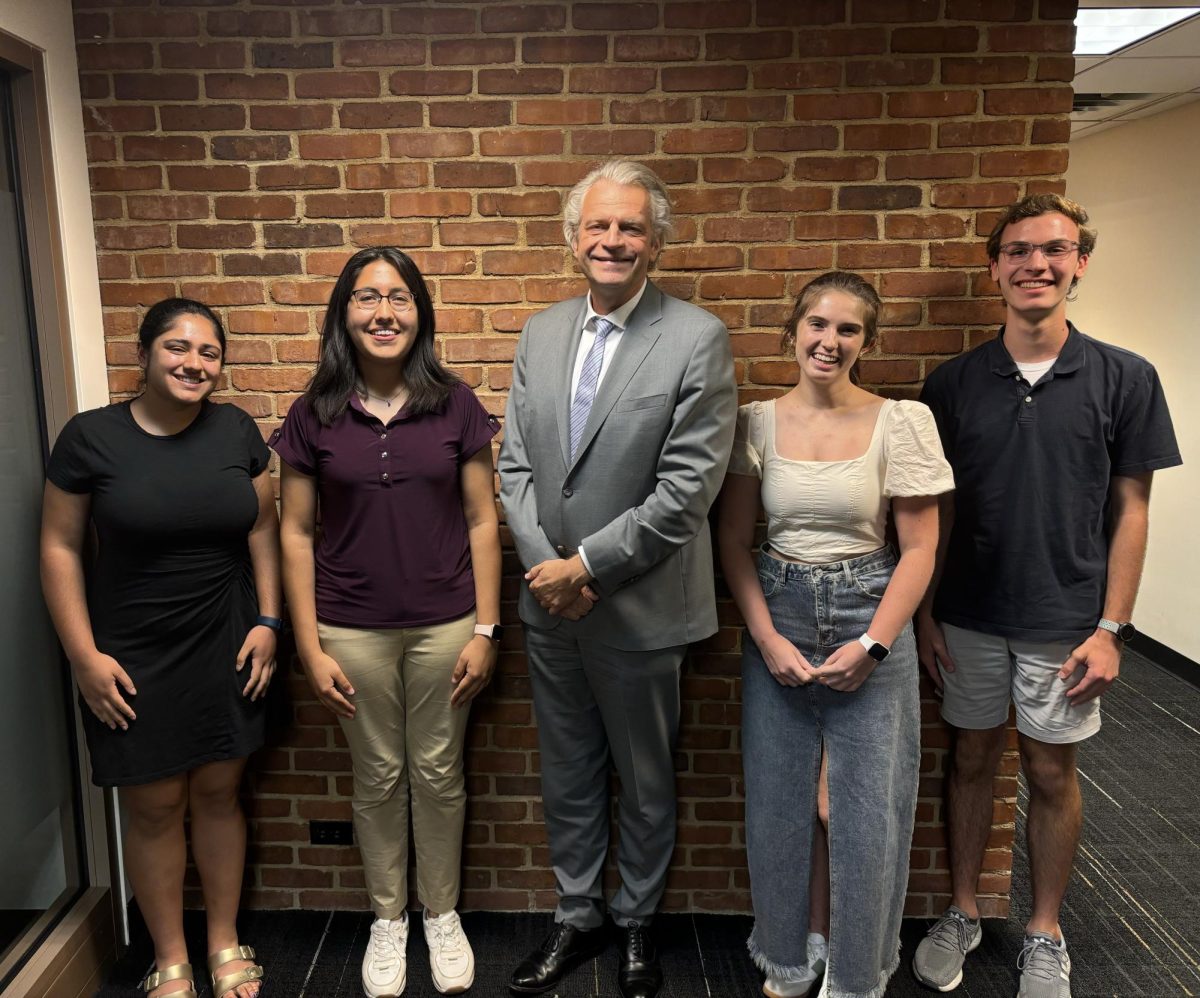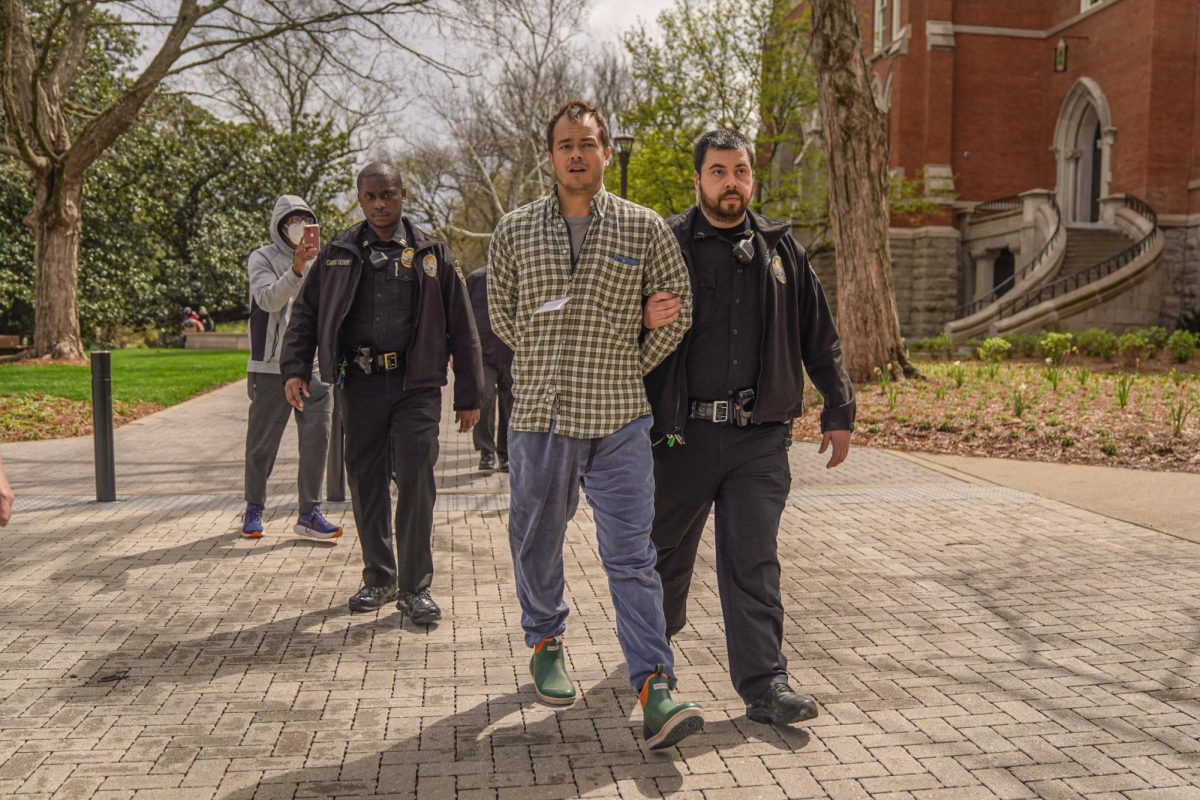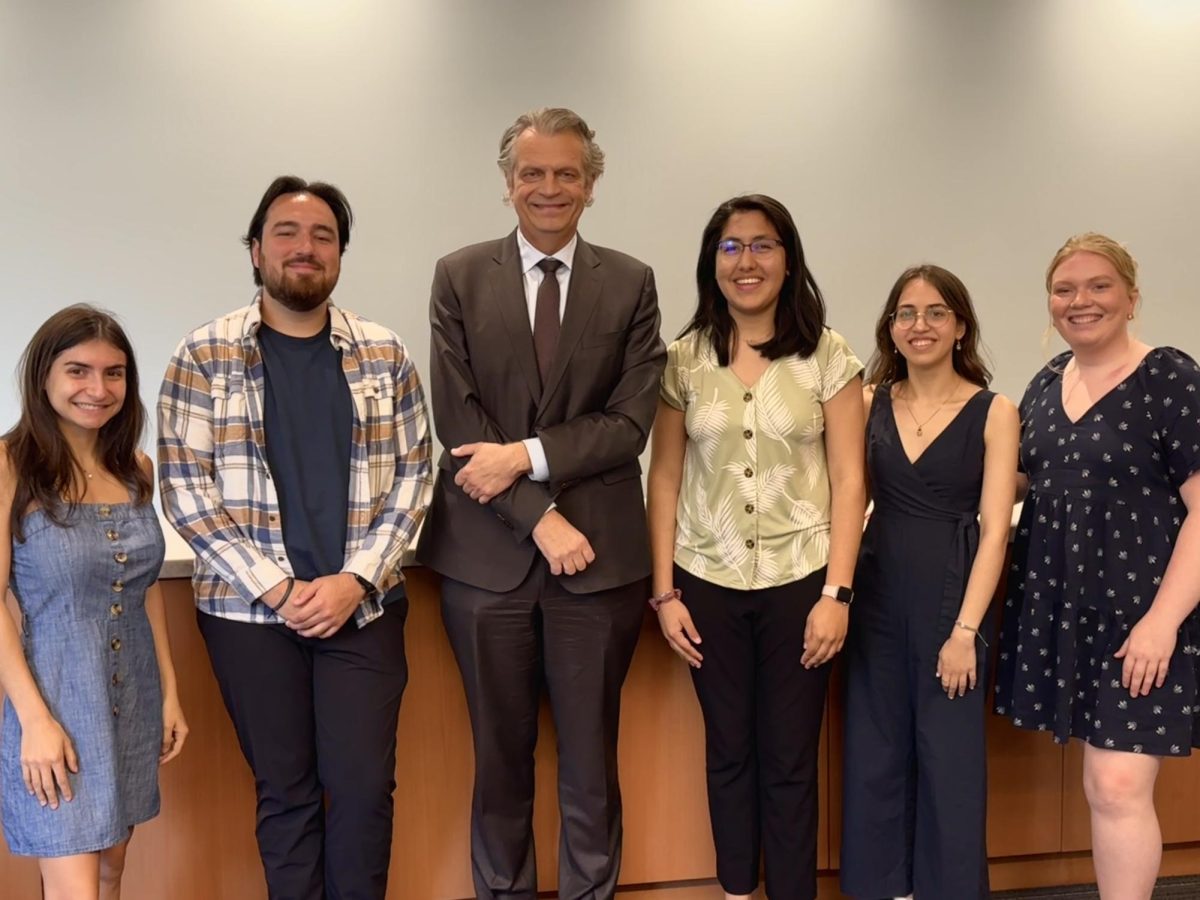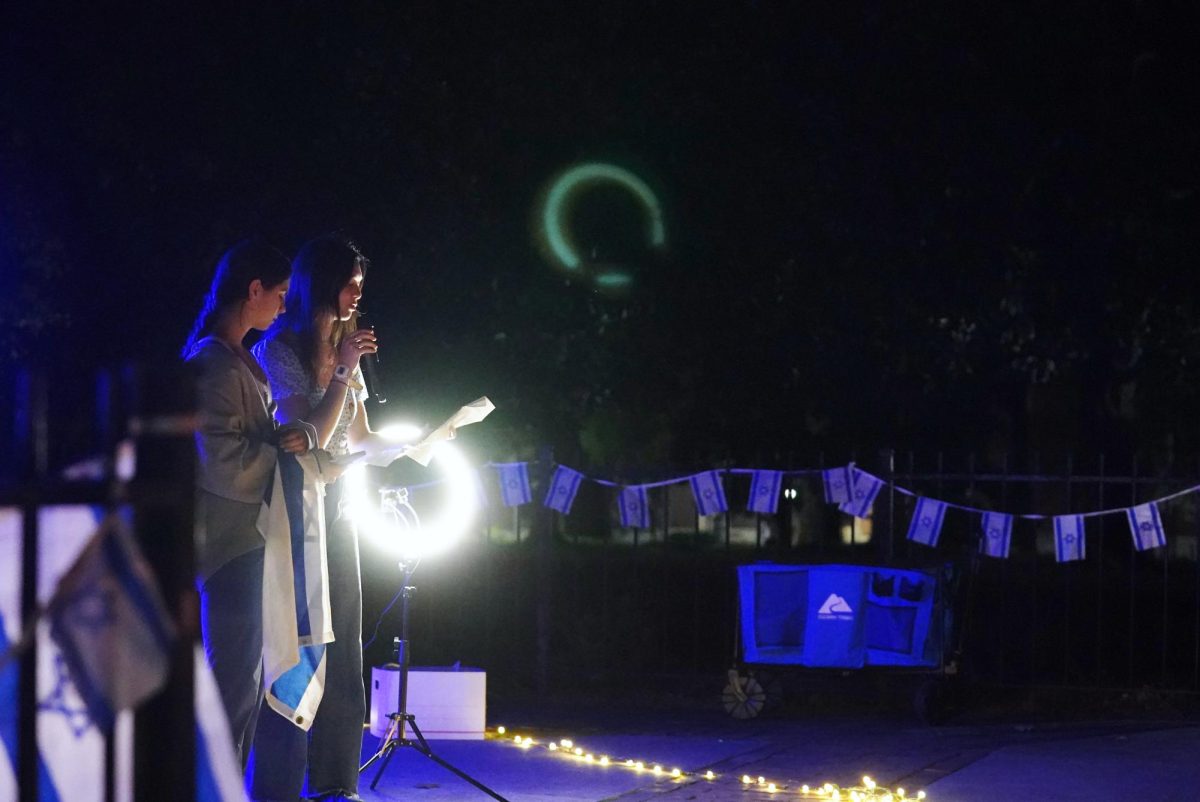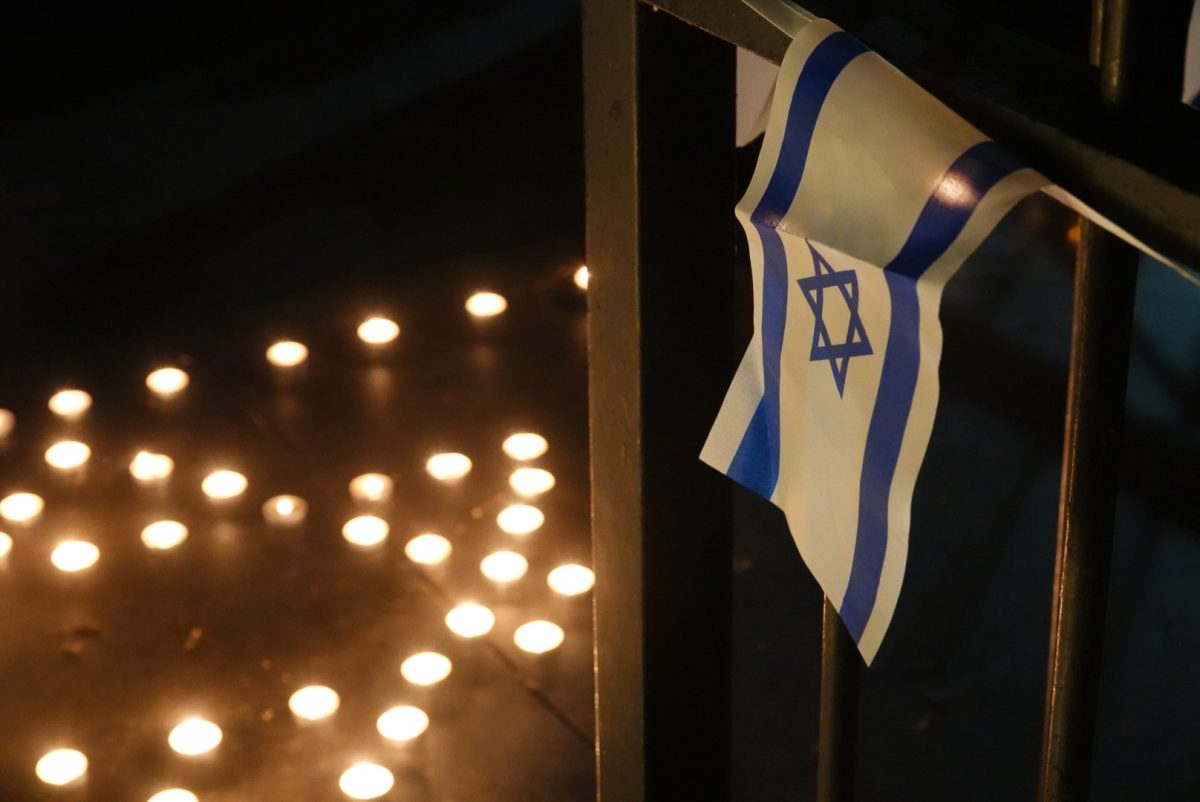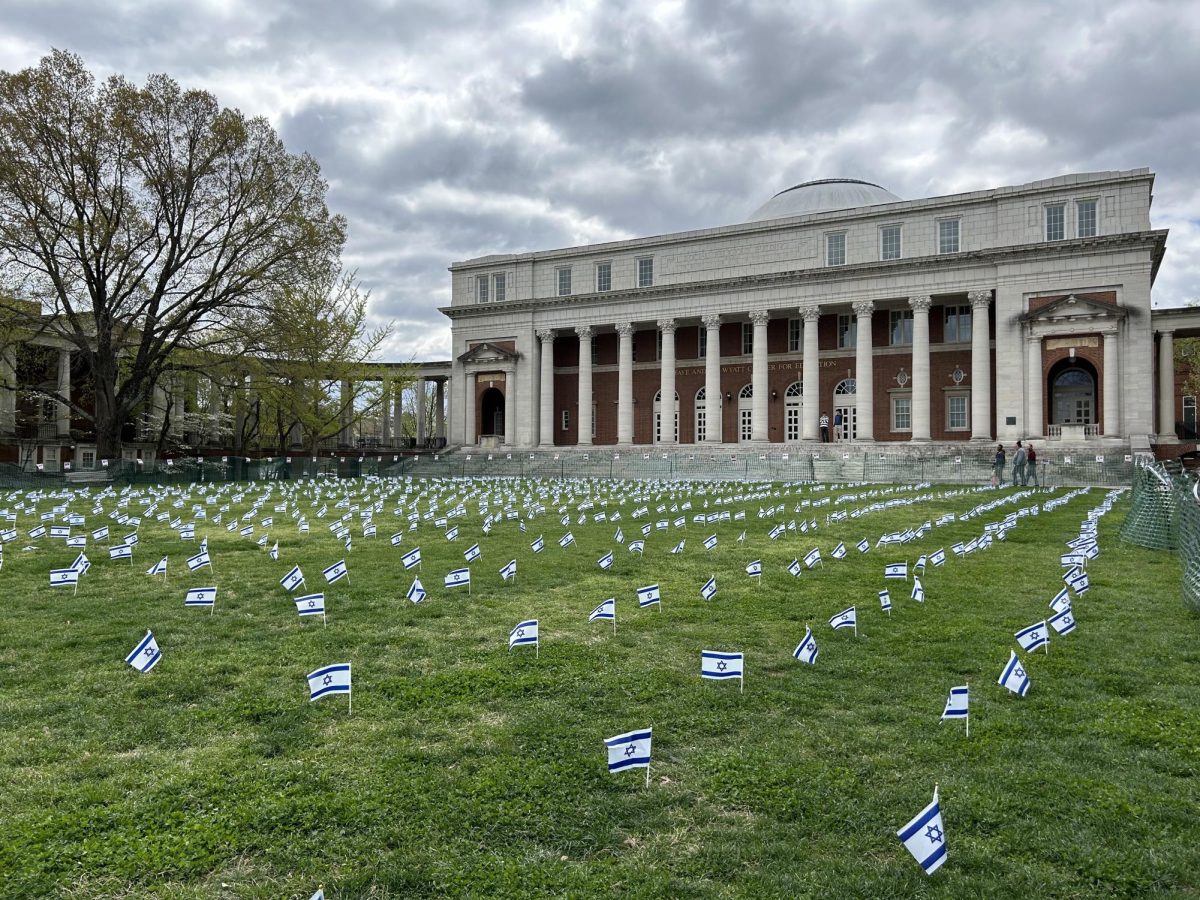The Hustler met with Chancellor Daniel Diermeier for the first debrief of the 2023-24 academic year on Oct. 23. He discussed the role of principled neutrality in his statements on the Israel-Hamas War and explained the reasoning behind his emails denouncing US News’ ranking methodology.
On a lighter note, he delivered his take on Taylor Swift and expressed excitement for Homecoming weekend and Thanksgiving.
The Hustler: In the midst of the Israel-Hamas War, many students are wondering about the extent to which principled neutrality is applied in various situations. At what point is it the university’s responsibility to address international violence, if at all?
Diermeier: Every decision that we make is grounded in our purpose, and that means we want to create an environment where faculty can do pathbreaking research and our students can have a transformative education. In order to have that, they need to feel a strong sense of belonging. So, when the events in Israel happened a little over two weeks ago, our first real focus was on our community. We sent a message to the community right away with a goal to reassure and connect with the members of our community. Given the horrific details that were emerging at the time, we did it very quickly.
Then, over the next two days, more and more of the horrific details became known. And then I think there was also a sense that a second message needed to come from the heart. The second message was really about checking in on families. We had, of course, lots of conversations with members of our community. The first goal was about how we were doing as a community. Then, I think it needed to be more from the heart.
Principled neutrality means in this context that we don’t want to get involved in policy debates with international affairs, broadly speaking. It’s important because that creates an environment for faculty and students to explore these things for themselves. As challenging as things have been for everybody recently, I think we as a community, given the circumstances, did a very good job with this and especially the students. I think that a super job; they engaged in a vigil — there was this reflective work, and there was another prayer gathering on Friday night. It was very challenging emotionally, especially for those students who had friends, family or loved ones who were directly involved or were directly affected. I’m contrasting that with what’s going on at other universities. It’s sometimes easy to lose track because we’re dealing with challenging issues, but, I mean, we literally had university communities across the country being ripped apart by this in every respect; we had campus closures. So, as difficult as this has been for members of our community, we stuck to our ethics broadly. We stuck to civil discourse. The most important thing is that we do not forget that, even though we disagree on things, we treat each other with respect, and we can engage in difficult conversations. We did that really well — not perfectly, not all the time, not that there were no incidents, but overall as a community compared to what was going on in many other universities. I feel as though this was a proud moment.
Having a commitment to principled neutrality doesn’t mean you have to be cold or distant. I think there should be, and I think people want that; we’re very community oriented. When horrible things happen, you need to hear from me on an emotional and human level. I think the email on Wednesday was more from the heart. A reference point for this goal should be when we had the horrible Covenant School shooting; we are trying to have a similar reaction as we did then. That’s a moment where people needed to hear things in an emotional way. The Hamas attacks took a few days until, at least to me, things became clearer. When I’m expressing my horror at the atrocities committed, I’m not engaging in Middle Eastern politics, but there is a need for a human emotional connection in these moments. And that’s what we’re trying to do. But that doesn’t mean we’re deviating. There is a need in this moment to connect with your community directly. Again, look at the Covenant shootings as a reference point.
Since your initial emails, there have been further concerns about the lack of messages being sent now that additional details have become evident in the Israel-Hamas War. Can you speak to that and what decisions go into what is communicated?
The goal is the same: we want to make sure that members of our community feel some sense of belonging. I’m worried about all students, but right now I think Muslim students and Middle Eastern students need an extra level of support. We reached out to them, but there’s probably more than one or two. We’ve had conversations on that — how do we make sure that all members of our community are supported and, if you’re a Middle Eastern student just like any other student group, you have different points of view on that too. Not everybody has the same point of view; there are students from the Middle East that are Muslim, there are students from the Middle East that are Coptic Christian. Same with our Jewish students and with every one of our student groups. This will remain our task, to make sure that all members of our community are supported.
Some students have made comments about how the university took a stronger and lengthier stance in regard to the U.S. News ranking methodology than the ongoing war in the Middle East. How does the university make decisions on how to address national and international happenings with that kind of community focus that you mentioned?
It is good to keep these two perspectives separate. One is the academic side; we are an academic institution, and the second one is international affairs. International affairs, unless they are directly connected to something that we do, we will always be in the community belonging space. They will not involve detailed discussions about policy issues. How we connect with and how we do that is very much a context-specific decision. We always connect with students every time there is a specific issue, whether a natural disaster or international crisis.
The U.S. News and World Report rankings are on the academic side of the house. How do we engage with the academic side of the house? Depends on the issue. Of course, that’s what we spend 90% of our time on, that’s really critical. Why did we address this? The way we did it was pretty forceful. Here’s why: Whether we like it or not, there are students and families that are making the decision on whether they go to Vanderbilt University based on what’s in those rankings. We may not like that. You may think that they shouldn’t, but they do. The rankings this year were a dramatic deviation from what happened before. They call it the biggest change in rankings in their history.
Here’s why: there’s a very well-known phenomenon called under-matching in research on access to higher education, which we’re super committed to. You have students or families that are very high-achieving; it would be a wonderful opportunity for them to go to a place like Vanderbilt, but because they think Vanderbilt is not affordable for them, they choose to go to the local university instead. Local universities can be fine, but students are missing out on a great Vanderbilt education. More importantly, if they’re low-income students, they would graduate debt-free from Vanderbilt while they would maybe have a higher debt load from a local university. Because of the sloppy way in which U.S. News is doing its rankings, we are increasing the barriers to access for first-generation students, and I thought I had a responsibility to speak up. It’s a big deal to me to ensure that students are not excluded from a Vanderbilt education if they would be better off both educationally and financially. That’s why we have financial aid in the first place. Such an easy thing to fix, such an easy thing to do responsibly, and U.S. News didn’t do it.
Can you explain how this email and the initial one coincide with the messages that you impart in your Reputations Rules book, especially given the criticism of the message with some saying that it might have done more to damage the university’s reputation than the rankings themselves?
When we wrote that, we knew that some people would be unhappy. They would say ‘they’re just sour grapes’ or ‘you’re such a privileged institution, why do you complain?’ Everybody knew that would happen. The important thing is we need to get an audience to get this across because most people don’t know. Why would you? It’s not so obvious, you have to think about it, you have to make the case, you have to understand how financial aid works. The most important thing is that people pay attention to how detrimental these rankings can be to families choosing the college for their sons and daughters. Having a strong position that creates some backlash, as long as what you’re saying is principled and aligned with the purpose of the university, is fine.
If you’re saying something that is aligned with what you believe in and what your values are, you should say it, and then if people push back on you, that’s okay. We did the same thing with principle neutrality, which we also got some backlash on. Now more universities are thinking seriously about this, moving in that direction. Shying away from controversy, particularly if the issues themselves are controversial, is okay as long as what you do is based on what your purpose is and what your values are.
One more thing I should say, which goes back to the old reputation question, is why this is important. Making a decision of where you go to college is one of the most important decisions in your lives. If you’re a first generation student, you have nobody to talk to, usually. Nobody in your family knows how to do this, and you are even more relying on publicly available sources. That’s why these things [rankings] are really problematic because they’re reporting themselves to be information and useful things that actually have bad consequences.
VUMC and Vanderbilt University are legally separate institutions, but the university’s response to the U.S. News rankings mentioned how they did not include VUMC funding and resources. What is the difference between the situations where we do want to include VUMC as part of Vanderbilt and when we do not?
The way you want to think about the relationship between Vanderbilt University and Vanderbilt University Medical Center is complex, but once you take away all the complexity, it’s pretty straight forward. They are separate institutions with a very, very close relationship. If you think about a typical doctor in VUMC, that faculty member typically has three roles — to provide VUMC clinical care, to provide Vanderbilt University research and to do education. When it comes to the research of the faculty and the research funding that they’ve been successful, that is in their role as Vanderbilt University faculty. As such, naturally their success in publications and research funding is [part of] Vanderbilt University. But when they provide clinical care, that is in their role as faculty members of VUMC. When it comes to transgender care, that’s clinical care from the medical center. You’re always thinking about these three roles. That’s how you can keep the two separate. It’s a little oversimplified but a good approximation.
In light of recent concerns about university safety with the trespasser in EBI, a gun found in Blair and recent campus shootings around the country, what is Vanderbilt doing to keep this campus safe? Can you explain the goals of the building and safety examinations that are going to be happening in the near future?
Safety on campus is top priority for us. Whenever we have incidents, Vanderbilt University Public Safety responds to them; we have a very effective public safety function on campus. One reason we have it is because of our officers; they’re sworn officers, they know the campus, they know the students, they know where everything is.
Having said that, we always want to do better. And so when we’ve had these horrible reports of campus shootings across the country, we ask ourselves: What can we do better? Periodically what you want to do, but particularly when you have these events around the country, you want to do an outside review. We bring in third-party people, and they kick the tires. How good are we? What can we do better? And that’s what we’re doing. We don’t think that there are some specific problems that need to be addressed. They’re about to or have just wrapped up the assessment.
The University recently transitioned the American Studies major to Culture, Advocacy and Leadership and then also added the political economies minor, with some other changes here and there. What are the processes that lead to the establishment of new academic offerings, and how is it decided which to bring to campus?
The first important thing is that we’re always trying to improve the educational offerings for our students, and part of that is to explore majors or minors and then reorganize them. So that’s an ongoing process. The second thing is that universities are different. We have certain majors that others don’t have, for example, you know, we have a HOD which is special to Vanderbilt as well as MHS and the climate studies major. These are unique majors that Vanderbilt offers that other universities don’t offer. Every one of the potential majors is a pretty detailed discussion. So it would involve the faculty, department chairs, both deans if it’s a cross-disciplinary major, and involves the Provost Office as well. It’s a pretty complicated process. I don’t think we should try to do everything, but we also need to respond to changes in interest. For example, the data science offerings that we have, that’s, of course, something that’s happening in the world. And then there’s a particular way in which we may want to do things that we feel are a particularly good fit for Vanderbilt. So it’s true we don’t have a business undergraduate major, but we have an undergraduate business minor; we think that works very well. Overall, it’s a process that involves the faculty and the academic leadership, but also if there are specific things that students are interested in, we should research those as well.
Vanderbilt was recently the recipient of the Roberts family’s generous donation to establish the Roberts Academy and Dyslexia Center. How is fund allocation determined when large donations like that one are received?
We were delighted that the Roberts family chose Vanderbilt as their partner and were particularly excited about this gift because it will do so much good for the students and will also allow us to advance our mission as an educator and as a research university in this very important field and become one of the best centers in the world. We couldn’t be more delighted. It has everything we want — education, direct impact and research eminence.
When you have an initiative like that, it’s a detailed planning process that may be in one school. In this particular case, Peabody is the home of that. The team from relevant departments work together on that supported by other staff — development, alumni relations, communications, finance. All these things play a role. They come up with a plan of what they want to do and how they want to use the resources. It’s not different than any other academic or university planning process for us.
What are your thoughts on Taylor Swift? Do you have a favorite song of hers?
She is an enormously impressive person. She’s succeeded as a musician, as an artist, as a singer-songwriter. She came with a dream to Nashville, and what I find most impressive is that she seems to be totally in control of what she wants. She has a very clear point of view about how she wanted her tour to be, how she’s thinking about the ‘Taylor’s Version.’ I’ve also heard that she was approached for endorsing FTX and didn’t do it because she asked a tough question. Very impressive, as an artist but also as an entrepreneur who has control over her life, and it’s just impressive all around. What a story. Unbelievable.
Do you have a particular favorite Taylor Swift album or song?
On move-in day, I ran into Vanderbilt Radio, and I suggested Taylor’s Version of “Love Story.”
Is there anything particular that you love about fall or, since coming to the U.S., do you have a favorite Thanksgiving tradition?
I love fall; it’s wonderful in Nashville. The four seasons are wonderful. One thing that I think is such a treasure in living here is that, within 45 minutes or half an hour, you can be in nature — you can walk through the forest or you can walk to a waterfall.
I always love the Thanksgiving tradition on the Monday before Thanksgiving, which is for students. Many of them are international students who are there because they can’t go back to their families during that time. So we have a Thanksgiving dinner, and it reminds me of my first Thanksgiving when I was foreign international student. All of us brought something, so we had a little three little turkey but we also had some pasta, we had the whole thing. It was a kind of a potluck Thanksgiving dinner. None of us had any money, but we spent a wonderful Thanksgiving dinner together. So I love this tradition because it’s another sense in which we can be a community and support each other in this particularly meaningful way.
As we look ahead to Homecoming weekend, is there anything in particular about Homecoming and Homecoming weekend that you are looking forward to?
The best thing is just the interest, the enthusiasm and the energy that you feel. I think it’s sometimes easy with all the challenges that we face every day to forget what a great university and great community we have. Homecoming brings it all home and reminds us that we’re really looking forward to seeing everybody again.

